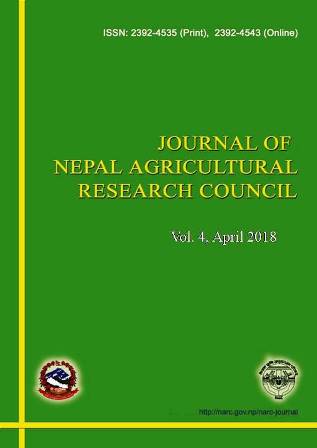Degree of Milling Effect on Cold Water Rice Quality
DOI:
https://doi.org/10.3126/jnarc.v4i1.19685Keywords:
Amylose, Cold water rice, Elongation ratio, Gruel loss, Head rice recoveryAbstract
The aim of this study was to examine the effects of degree of milling on various rice parameters such as proximate composition, and cooking properties using mathematical model. The experiments were performed in the laboratory of Food Research Division, Nepal Agricultural Research Council. The three different medium type rice varieties of Nepal (Lumle-2, Chhomrong and Machhapuchre-3) were exposed to five different degrees of milling (0%, 6%, 8%, 10% and 12%). The degree of milling (DM) level significantly (P≤0.05) affected the milling recovery; head rice yield, nutrient content as well as cooking properties of the rice. Increase in DM resulted in further reduction of protein content, fat content, minerals, milled rice and head rice yield after bran layer was further removed. A positive correlation between DM used in present model, amylose content, kernel elongation and gruel solid loss was observed, however, with an increase in DM; amylose content, kernel elongation and gruel solid loss were found to be increased. Adopting 6 to 8% DM for commercial milling of rice might help to prevent quantitative, qualitative and nutritional loss along with retention of good cooking characteristics.




